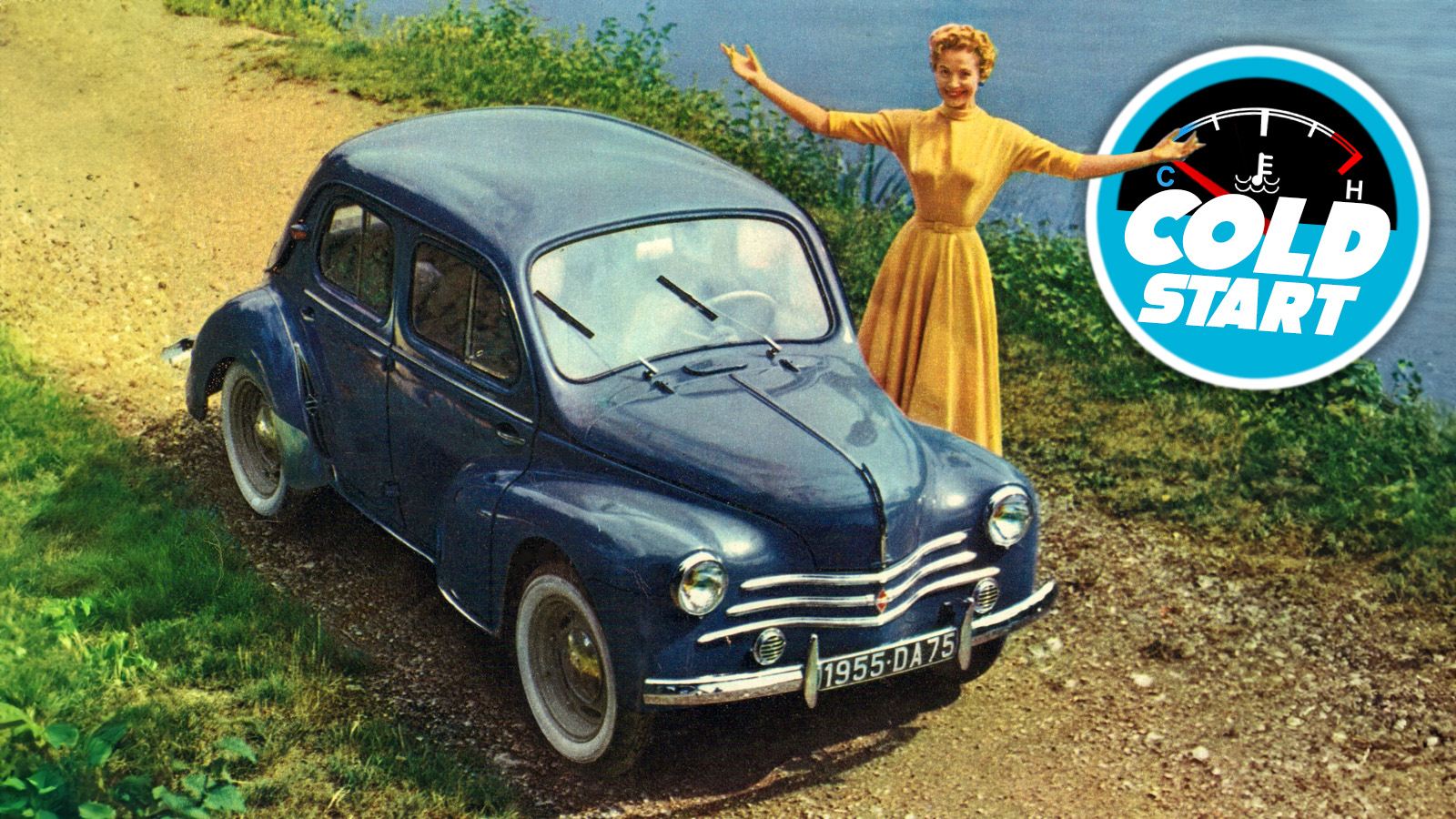I feel like I ended the week on a bit of a tumultuous note with my perhaps overly spicy CD-take, so I’d like to begin this week with something I think we can all universally find uplifting. It’s probably exactly what you’re thinking it is: the peculiar and sort of Rube Goldberg-y remote-operated radiator blind setup on the Renault 4CV!
I’m sure all of us at one time or another have taken a moment of reverie to contemplate the way the Renault 4CV limited airflow into the radiator during the cooler times of the year, to allow for quicker engine warm up and more efficient operation, oh, and also for much more effective cabin heating. Cars of the 1950s didn’t exactly have sophisticated thermal management, so sometimes a solution as crude as a radiator blind was just what was needed.
On some cars, the radiator blind was even cruder – just a simple cover that went over the grille to limit the amount of air that gets into the radiator. You can still buy things like this today, for example this one for a Land Rover:

But on the 1955 Renault 750 (also known as the 4CV), there was a much more sophisticated and, arguably, overcomplicated solution. Let me show you:

Okay, so here’s a nice cutaway of the ’55 750. Pretty good sized trunk on that thing! Okay, focus, JJ. Look in the back there; the 4CV used a water-cooled inline-four engine set just aft of the rear axle, hanging out and giving the car a pretty substantial butt. Just in front of the engine is the radiator, set basically right behind the rear seat and fed air via two small grilles, one one the leading edge of each rear fender.

You can see the little vertical air intake there, just above Ms.Reclina’s foot and above that chrome stone protector on the rear fender.
Okay, let’s get a closer look on the radiator. Computer! Zoom and enhance cutaway, focus on sector 12,5!

Okay, so look at this: there’s the radiator, just above the differential, and in front of that radiator, rising from the bottom, you can see what looks a bit like a window shade. That’s the radiator blind.
The blind is being supported by a thin wire, and if you follow that wire, you can see it leads up into a little tube atop the radiator, then snakes into another set of tubes that seem to disappear up into the C-pillar there.
And where does that all end up? Glad you asked. It ends up here:

The wire emerges above the driver’s side door, connected to what looks like a little crank. As that kid in the picture notes, that’s the radiator blind control!
So, from the driver’s seat, it looks like one can crank that little wire to pull the radiator blind up and down. This is such a hilariously simple and yet also complicated and fussy system, I can’t help but love it. It’s pretty great because it allows you to adjust the volume of cooling air the engine gets while you’re driving, from the comfort of the inside of the car, letting you limit it to get the heat going faster, then open it up as the engine warms up.
I wonder what that little crank felt like to use?
Oh, and you may be wondering why a little kid is showing us this. That’s because in this 1955 brochure the theme was, it seems, just letting a crapload of kids go ham on this little Renault:

I’ve always found the controls and trim in a 4CV to be kind of fragile-feeling, so I wonder if these kids with those hundreds of little probing fingers did any damage to this test car?

Of course, every 4CV I’ve encountered has been a half-century old or more, so perhaps when new things felt a little less spindly? Anyway, I kind of love this way of presenting a car, just flooding the thing with curious kids.
And, back to the remote-operated radiator blind – I know there were other cars with remotely-operated grille shutters (the Jensen 541 comes to mind) but I can’t think of any with such a strangely complicated system like this remotely-operated wire-driven-reverse-windowshade setup on this Renault.
So many good hidden things get revealed by the grubby little hands of kids, right?







The Rolls Royce 20/25 had a system which operated the large chrome shutters covering the front of the radiator.
Early cars had a manual control on the dashboard, I believe with a temperature warning light on the dashboard so that you didn’t overheat the engine, and cars from ’32 onwards had temperature controlled automatically operated system which opened the grille.